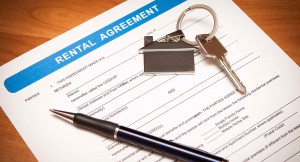It’s a truth universally acknowledged that you can’t have successful property investment without tenants paying you rent regularly.
But too many investors don’t put enough thought into who is the best person to professionally manage their properties – and many even try to do it themselves.
Successful property investors, however, understand that they need to treat their portfolios like a business so they employ professionals to manage their properties on their behalf.
Like any industry, however, not all property managers are created equally so how can you recognise a bad one?
The following five “signs” or behaviours are clear indicators of a potential problem on the horizon.
The time to deal with these issues is when you notice them because the longer they continue unabated, the worse the outcome for your portfolio.
1. Compliance issues
Part of your property manager’s job entails inspecting your property(ies) for compliance issues to ensure that your property, and you as a landlord, are adhering to the relevant legislation.
The property management sector is bound by a variety of rules and regulations and your property manager must be across all of these on your behalf – all of the time.
If they’re not, then it’s time to find a professional who is.
2. Lack of communication
Most investors like varying levels of communication but no one likes a property manager who is completely incommunicado.
If you consistently can’t reach your property manager when you need to, this is usually a red flag that they may not be right fit for you.
3. Consistently late reports
Professional property management is all about strict notice periods so if your property manager can’t even send your monthly report on time, what other things are they doing late or even not at all?
4. No follow through 
This is a major sign of unprofessionalism – and in some cases, sheer laziness.
Some examples of no follow through from your property manager include repairs not being done on time and/or in an orderly fashion, tenant complaints not being addressed and a serious lack of regular property inspections.
If your property manager doesn’t follow through regularly, then you should consider finding someone who does.
5. Poor (or no) maintenance
Part of a professional property manager’s role is to look after your investment property, including organising any required maintenance or repairs in a timely fashion.
Take some time – even if your property is in another state – to drive by your investment property unannounced.
Aside from possible tenant clutter, if your property is not looking its best – such as it has broken shutters, missing tiles, or an overgrown yard, etc. – then you need to immediately take action to resolve the issue.
If your property manager is regularly displaying any of these traits then it’s probably time to consider finding a new one.
You can safeguard against ending up with another bad performer by ensuring that your new property manager follows your instructions to a tee.
Also, don’t assume your old property manager did their job, so conduct a thorough review of all your tenant records, checking for collected rents, inspections, repairs, etc.
As soon as possible, set up an onsite inspection – giving your tenants a face with the new name, as well as the expectation that your new property manager will be more accessible.
Implement any necessary action to collect past due rents including, if necessary, initiation of eviction proceedings.
If your old property manager was a poor performer, it’s highly likely that your tenants will have a number of frustrations that they’re keen to vent.
Take the time to listen to their concerns via your new property manager but remember that unless any concerns were in writing, it legally never happened.
All property investors need to remember that the bottom line should always be to improve their cash flow.
This is why it’s vital to address any poor property management issues as soon as you become aware of them.
The longer you wait, the more damage can be done, and the longer it will take to bring your portfolio back up to par.




No comments:
Post a Comment